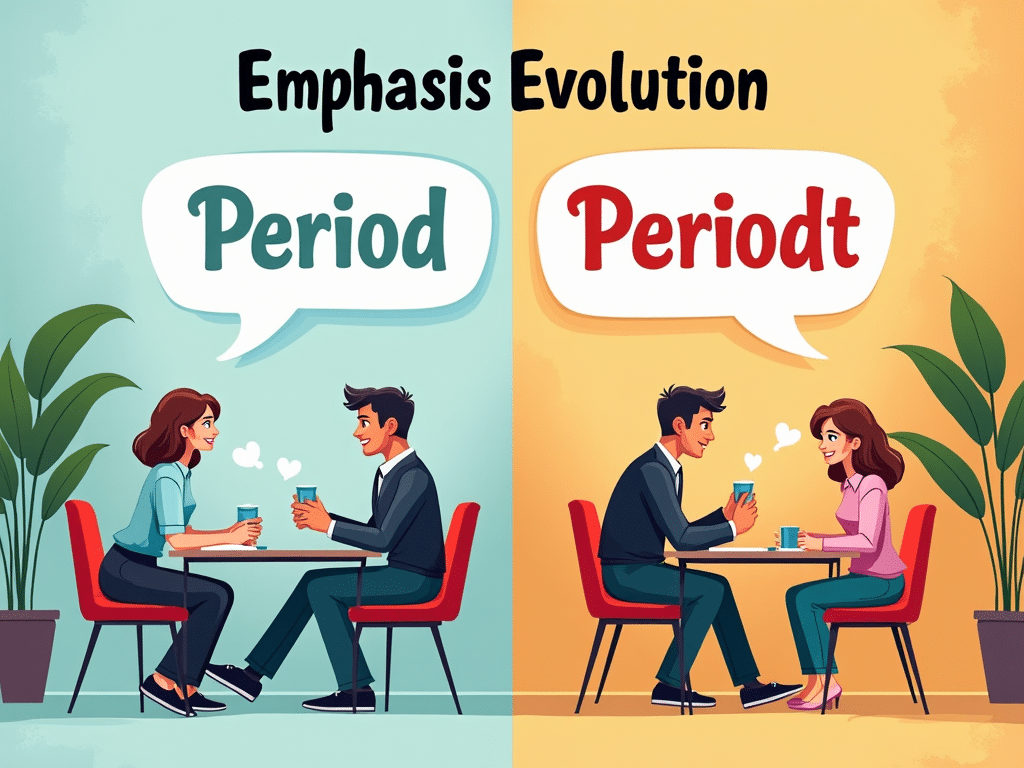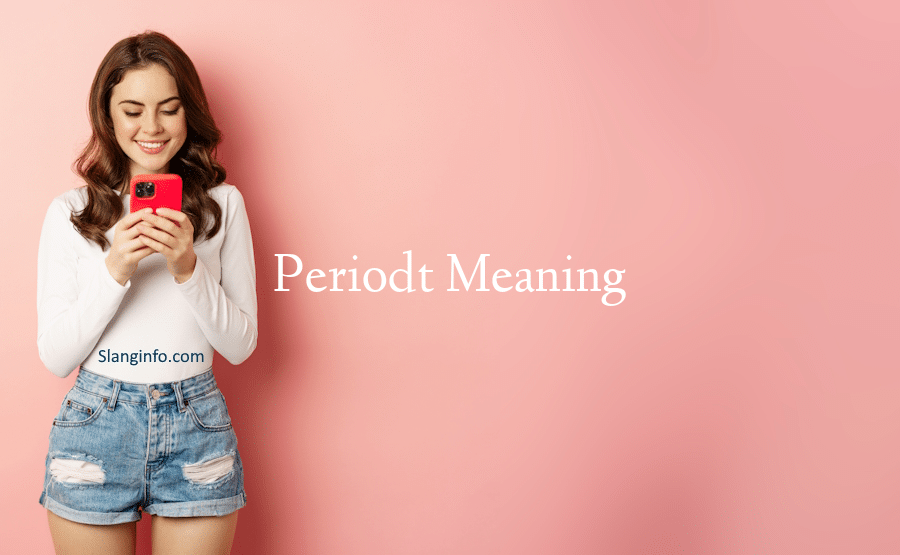If you’ve been scrolling through social media lately, you might have come across the word “periodt” and wondered what it means. This slang term has gained massive popularity, especially among younger internet users. But what exactly does “periodt” mean, and how is it used? Let’s dive into the world of this emphatic expression.
| Key Takeaways |
|---|
| 1. Periodt” is a slang variation of “period |
| 2. It originated in African American Vernacular English (AAVE) |
| 3. Used to emphasize finality or agreement |
| 4. Popular in social media and among younger generations |
| 5. Can be used as part of the phrase “and that’s on periodt” |

Origins and Etymology
The term “periodt” has its roots in African American Vernacular English (AAVE) and Black queer communities. It’s a variation of the word “period,” which has long been used to emphasize the finality of a statement. The added “t” at the end gives it extra emphasis and attitude.
As someone who’s been studying internet slang for years, I’ve watched “periodt” evolve from a niche term to a widely used expression. Its journey from AAVE to mainstream internet culture is similar to other slang terms like “ATP” (At This Point) or “BBG” (Baby Girl).
How to Use “Periodt”
“Periodt” is typically used at the end of a statement to add emphasis or indicate that there’s nothing more to be said on the matter. Here are some examples:
- “I’m not going to that party, periodt.”
- “She’s the best singer in the group, periodt.”
- “This is the last time I’m explaining this, periodt.”
It’s often used in situations where you want to make a strong statement or shut down further discussion. Think of it as a more emphatic way of saying “end of discussion” or “that’s final.”
Also read: Spill The Tea
“Periodt” vs. “Period”

While “period” and “periodt” serve similar functions, “periodt” carries extra weight and attitude. Here’s a comparison:
| Term | Level of Emphasis | Usage |
|---|---|---|
| Period | Moderate | More formal, widely understood |
| Periodt | High | Informal, adds extra attitude |
The added “t” in “periodt” isn’t just for show – it represents a harder, more definitive stop. It’s like the difference between putting a period at the end of a sentence and slamming your hand on the table for emphasis.
Cultural Significance
“Periodt” has become a significant part of internet culture, especially among Gen Z users. It’s often used in memes, tweets, and TikTok videos to add humor or emphasis to statements.
However, it’s important to note that like many AAVE terms that have entered mainstream usage, there are concerns about cultural appropriation. As a language expert, I always encourage users to be mindful of the origins of slang terms and to use them respectfully.## When to Use (and Not Use) “Periodt”
While “periodt” can be a fun and expressive term, it’s important to use it appropriately. Here are some guidelines:
Use “periodt” when:
- You want to add strong emphasis to a statement
- You’re making a definitive or final point
- You’re engaging in casual, informal conversation
Avoid using “periodt” when:
- You’re in a formal or professional setting
- You’re unsure of the cultural context or appropriateness
- You’re having a serious or sensitive conversation
Remember, context is key. What works in a casual tweet might not be appropriate in a job interview or a serious discussion.
Also read: Delulu Meaning
Related Slang Terms
“Periodt” is just one of many slang terms that have gained popularity in online communication. Here are a few related terms:
- “And that’s on periodt”: An extended version of “periodt” used to add even more emphasis.
- “Sis”: A term of endearment often used in conjunction with “periodt,” as in “Sis, you look amazing, periodt.”
- “Tea”: Slang for gossip or truth, often used in the phrase “spill the tea.”
- “Slay”: A term of praise, often used to express admiration for someone’s looks, skills, or achievements.
These terms are often used together or in similar contexts to “periodt,” and understanding their meanings can help you navigate online slang more effectively.
Expert Tips for Using Slang

As someone who studies language and internet culture, here are my top tips for using slang terms like “periodt”:
- Understand the context: Make sure you know the origins and cultural significance of a term before using it.
- Use it sparingly: Overusing slang can make your communication feel forced or inauthentic.
- Be respectful: Avoid using slang terms that are associated with communities you’re not a part of, or that you don’t fully understand.
- Adapt to your audience: Consider who you’re communicating with and whether slang is appropriate for that context.
Remember, slang is constantly evolving, and what’s popular today might be outdated tomorrow. The key is to stay informed and use slang thoughtfully and respectfully.
Also read: RIZZ
Conclusion
“Periodt” is a prime example of how language evolves and adapts in the digital age. This slang term, with its roots in AAVE and Black queer communities, has become a staple of online communication, particularly among younger generations.
While it can be a fun and expressive way to add emphasis to your statements, it’s important to use “periodt” and other slang terms respectfully and appropriately. By understanding the origins and cultural significance of these terms, we can communicate more effectively and inclusively online.
So, the next time you see “periodt” pop up in your social media feed, you’ll know exactly what it means and how to use it. And who knows? You might even find yourself dropping a “periodt” in your own conversations – just remember to use it wisely and respectfully.
For more insights into internet slang and culture, check out our articles on “KKKK Meaning” (a way of expressing laughter in some languages) and “WTAF Meaning” (a more emphatic version of “WTF”). Happy slang-ing!







